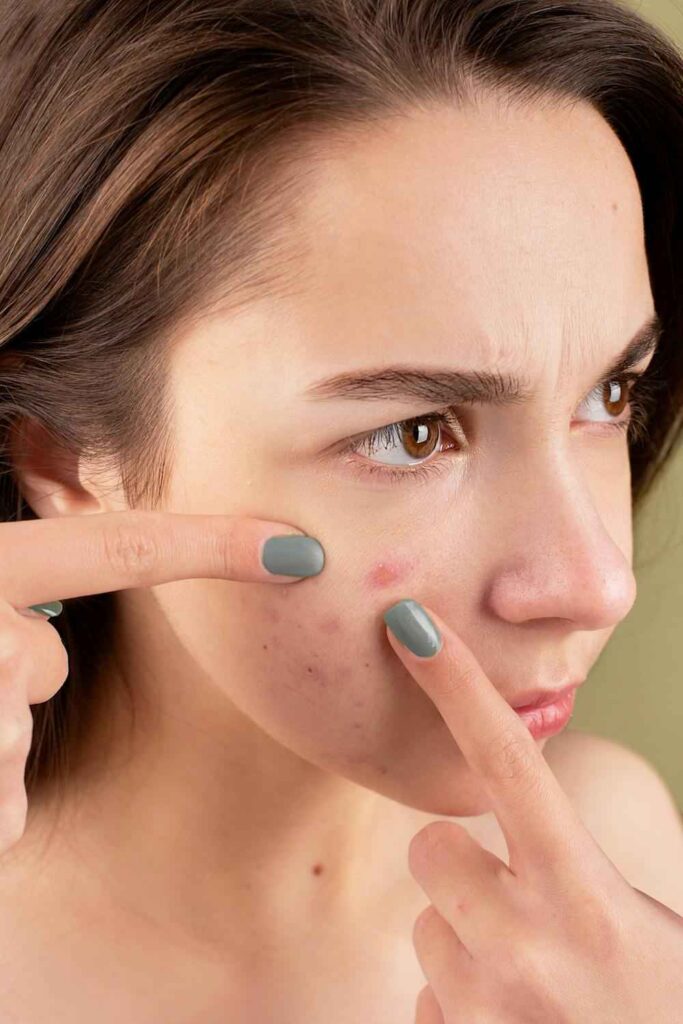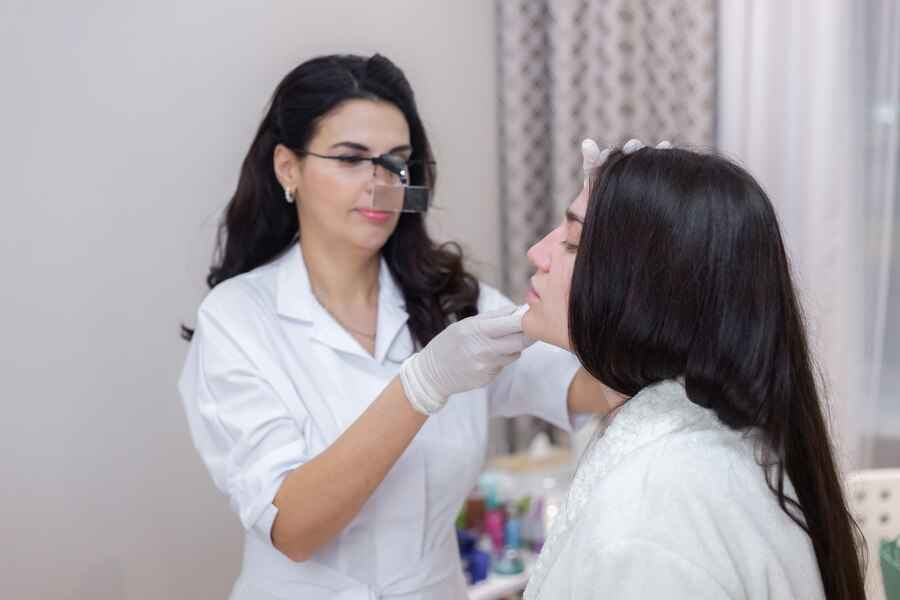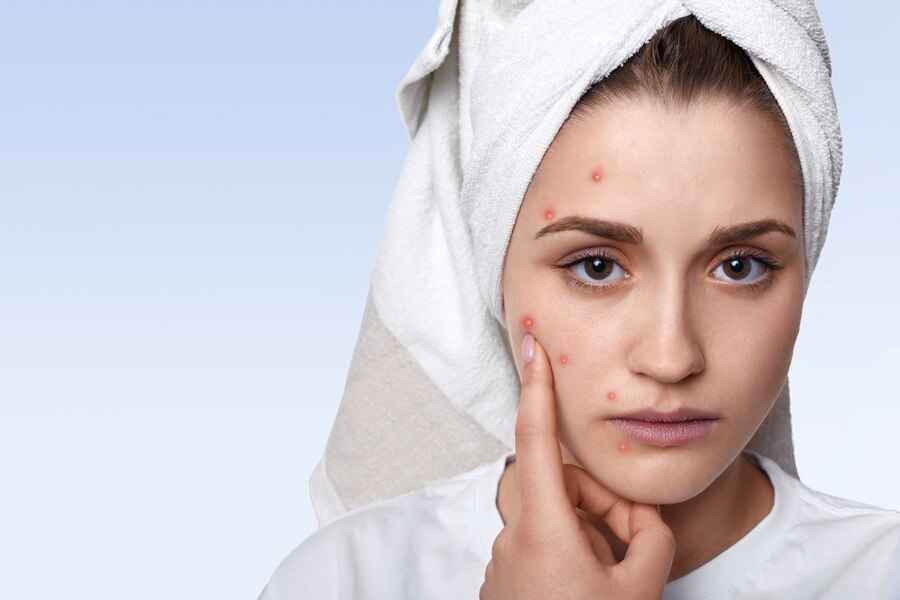Table of Contents
Acne is a common skin condition that affects millions of people worldwide, causing distress and discomfort. While various factors contribute to the development of acne, dietary choices have emerged as a significant area of interest. In recent years, gluten, a protein found in wheat, barley, and rye, has garnered attention for its potential link to acne outbreaks.
Understanding Gluten

Gluten is a composite protein that provides elasticity to dough and helps it rise during baking. It’s commonly found in bread, pasta, cereal, and other grain-based products. While gluten is harmless for most people, individuals with celiac disease or gluten sensitivity experience adverse reactions upon its consumption.
The Relationship Between Gluten and Acne
Research exploring the connection between gluten and acne is ongoing but inconclusive. Some studies suggest that gluten consumption may trigger inflammatory responses in susceptible individuals, leading to skin issues like acne. However, more robust evidence is needed to establish a definitive link.
How Gluten Affects the Skin

Gluten’s impact on the skin is complex and multifaceted. For some individuals, gluten ingestion may exacerbate inflammation, disrupt hormonal balance, or compromise skin barrier function, all of which can contribute to acne development.
Identifying Gluten in Your Diet
Spotting gluten in your diet requires careful scrutiny of food labels and ingredient lists. Wheat, barley, and rye are obvious sources, but gluten can also hide in processed foods, sauces, and condiments. Familiarizing yourself with alternative names for gluten-containing ingredients is essential for making informed choices.
Gluten-Free Diet: Is it the Solution?
While anecdotal evidence suggests that adopting a gluten-free diet can alleviate acne symptoms for some individuals, scientific consensus is lacking. It’s crucial to approach dietary changes thoughtfully and consider potential benefits alongside practical challenges.
Foods to Avoid for Clear Skin

Common culprits for gluten-induced acne include bread, pasta, pastries, and beer. Additionally, processed foods, fried items, and certain sauces may contain hidden gluten, making them potential triggers for skin flare-ups.
Gluten-Free Alternatives
Fortunately, many gluten-free alternatives are readily available, allowing individuals to enjoy their favorite foods without compromising their skin health. Quinoa, rice, corn, and gluten-free oats are nutritious substitutes for gluten-containing grains.
Benefits of a Gluten-Free Diet Beyond Acne

Beyond managing acne, adopting a gluten-free lifestyle may offer other health benefits, such as improved digestion, increased energy levels, and enhanced overall well-being. However, these advantages vary from person to person and require individualized consideration.
Tips for Transitioning to a Gluten-Free Lifestyle
Transitioning to a gluten-free diet can be challenging but rewarding. Start by gradually eliminating gluten-containing foods and experimenting with gluten-free alternatives. Seek support from online resources, support groups, and healthcare professionals to navigate this dietary shift successfully.
Consultation with a Healthcare Professional

Before embarking on a significant dietary change, it’s essential to consult with a healthcare professional, especially if you suspect gluten intolerance or have pre-existing health conditions. A qualified provider can offer personalized guidance tailored to your unique needs and circumstances.
While the relationship between gluten and acne remains a topic of debate, many individuals report improvements in skin health upon adopting a gluten-free diet. Whether you choose to eliminate gluten from your diet or not, prioritizing whole, nutrient-rich foods and maintaining a balanced lifestyle is key to promoting clear, radiant skin.
FAQs
1. Is gluten directly responsible for causing acne?
• While gluten may exacerbate acne symptoms in some individuals, it’s not the sole cause of acne. Various factors, including genetics, hormonal fluctuations, and skincare habits, contribute to acne development.
2. Can I self-diagnose gluten intolerance based on skin reactions alone?
• Skin reactions to gluten may indicate sensitivity, but diagnosing gluten intolerance requires comprehensive evaluation by a healthcare professional. Tests such as blood tests and biopsies are necessary for an accurate diagnosis.

3. Are there skincare products that contain gluten?
• Yes, some skincare products may contain gluten-derived ingredients. If you’re concerned about gluten exposure, opt for products labelled “gluten-free” or consult with a dermatologist for suitable alternatives.
4. Will eliminating gluten from my diet guarantee clear skin?
• While some individuals experience improvements in acne symptoms after adopting a gluten-free diet, results vary. Clear skin depends on various factors, including dietary choices, skincare regimen, and overall health.
5. Can gluten sensitivity manifest solely as skin issues?
• While gastrointestinal symptoms are common in gluten sensitivity and celiac disease, some individuals may experience predominantly skin-related symptoms. However, proper diagnosis is essential to rule out other underlying conditions.